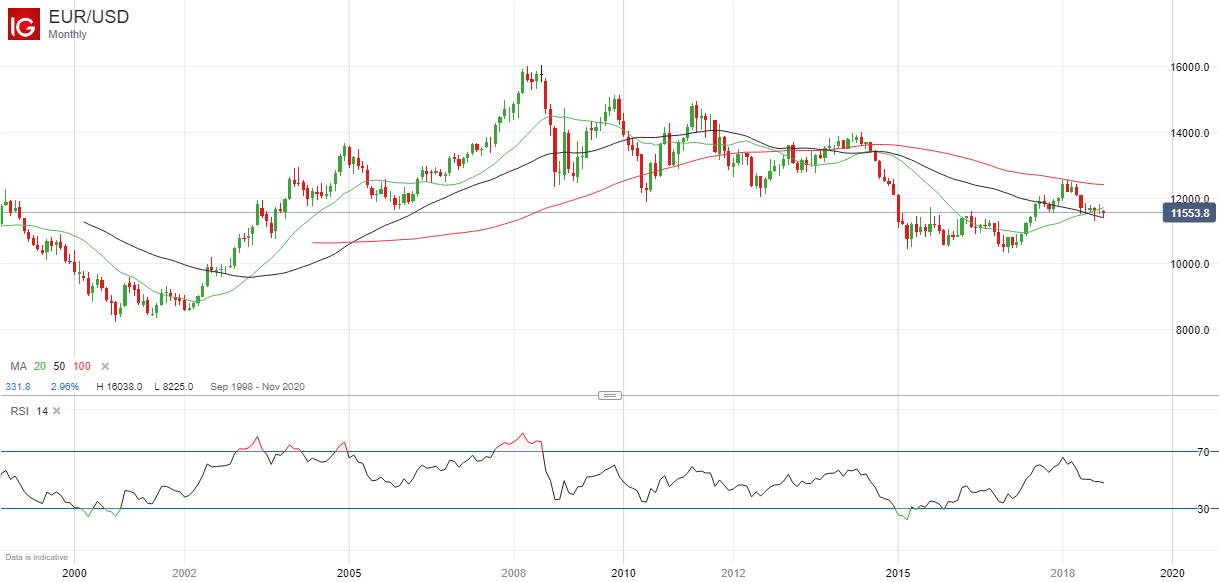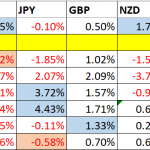IS EURO STABILITY UNDER THREAT?
As the UK and the European Union argue over Brexit, and Brussels clashes with Rome over the Italian budget, the future stability of the EU and the Euro is again in the spotlight. While the possibility of lasting damage to the single currency will likely be a concern for long-term investors rather than short-term traders, even day traders would be wise not to ignore them.
At the heart of the argument, from day one, has been criticism that monetary union will not work without fiscal union, political union and a lender of last resort. As it is, interest rates and monetary policy in general are decided by the European Central Bank. However, fiscal policies – on tax, spending and borrowing – are not decided on centrally but by individual EU governments.
CRITICISM OF THE EU AND THE EURO
Predictably, this has been highlighted by left-leaning economists such as Columbia University Professor Joseph Stiglitz, who has written a book entitled The Euro: How a Common Currency Threatens the Future of Europe. Less predictably, even the former European Commission President Jacques Delors, an architect of the single currency, reportedly told London’s The Daily Telegraph newspaper in 2011 that the Euro project was doomed from the start and that the current generation of European leaders had failed to address its fundamental problems.
However, there has been little evidence of this so far in the EURUSD exchange rate since the currency was introduced in January 1999, and even the Eurozone debt crisis of 2009-2012 had only a limited impact on the exchange rate.
EURUSD PRICE CHART, MONTHLY TIMEFRAME (JANUARY 1999 – OCTOBER 2018)

These are some of the principal concerns about the EU and the Euro – both political and economic – that have been expressed:









Leave A Comment